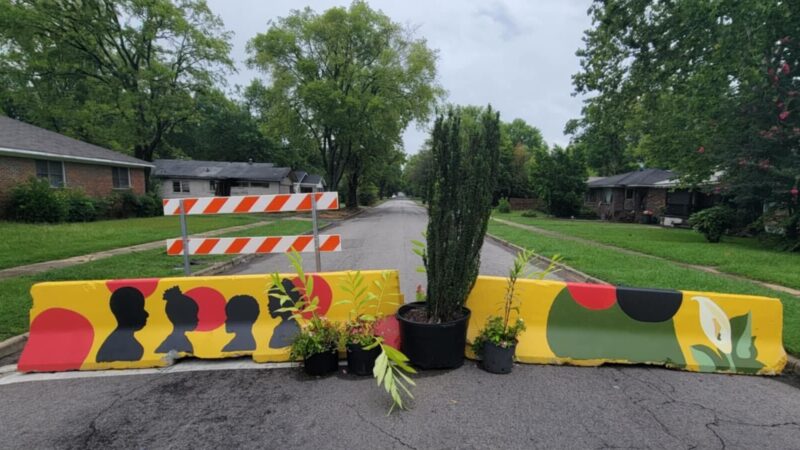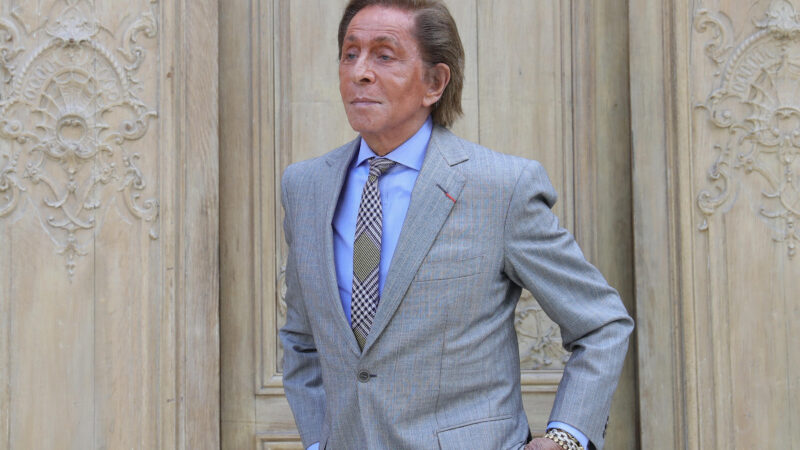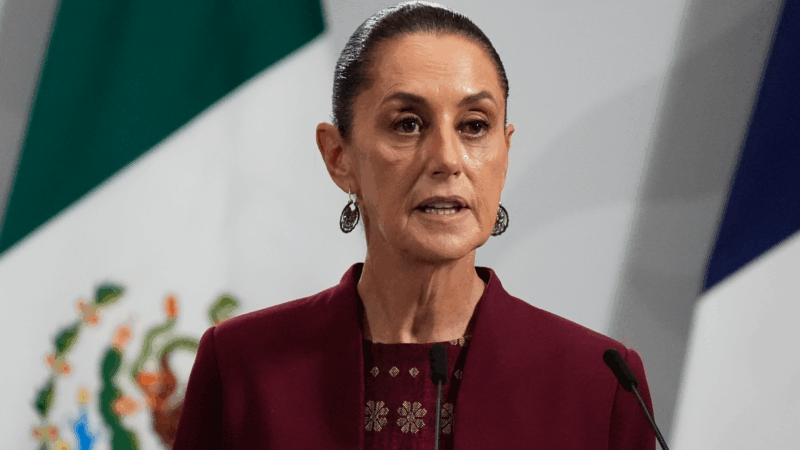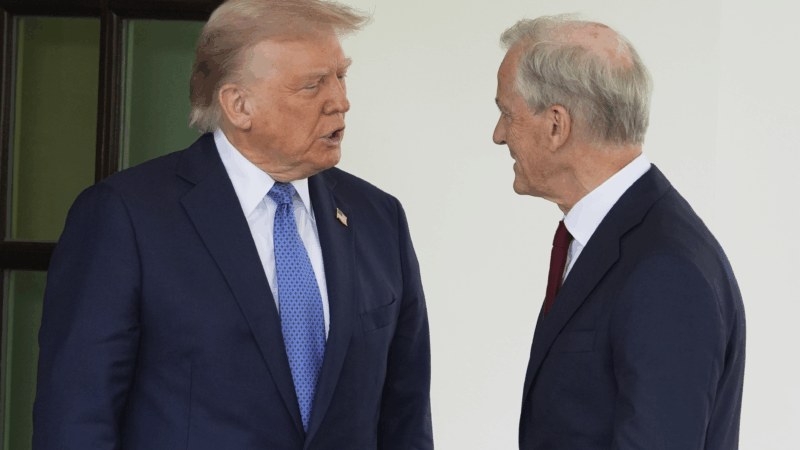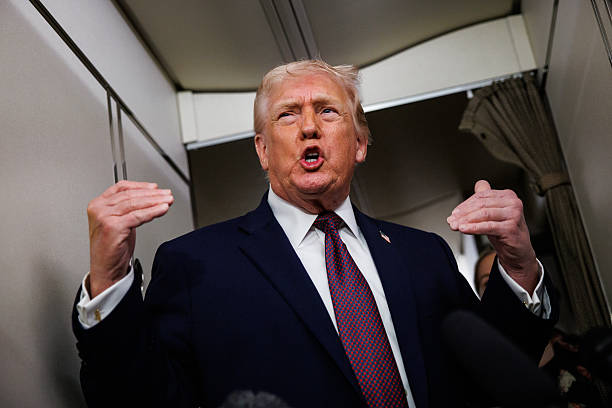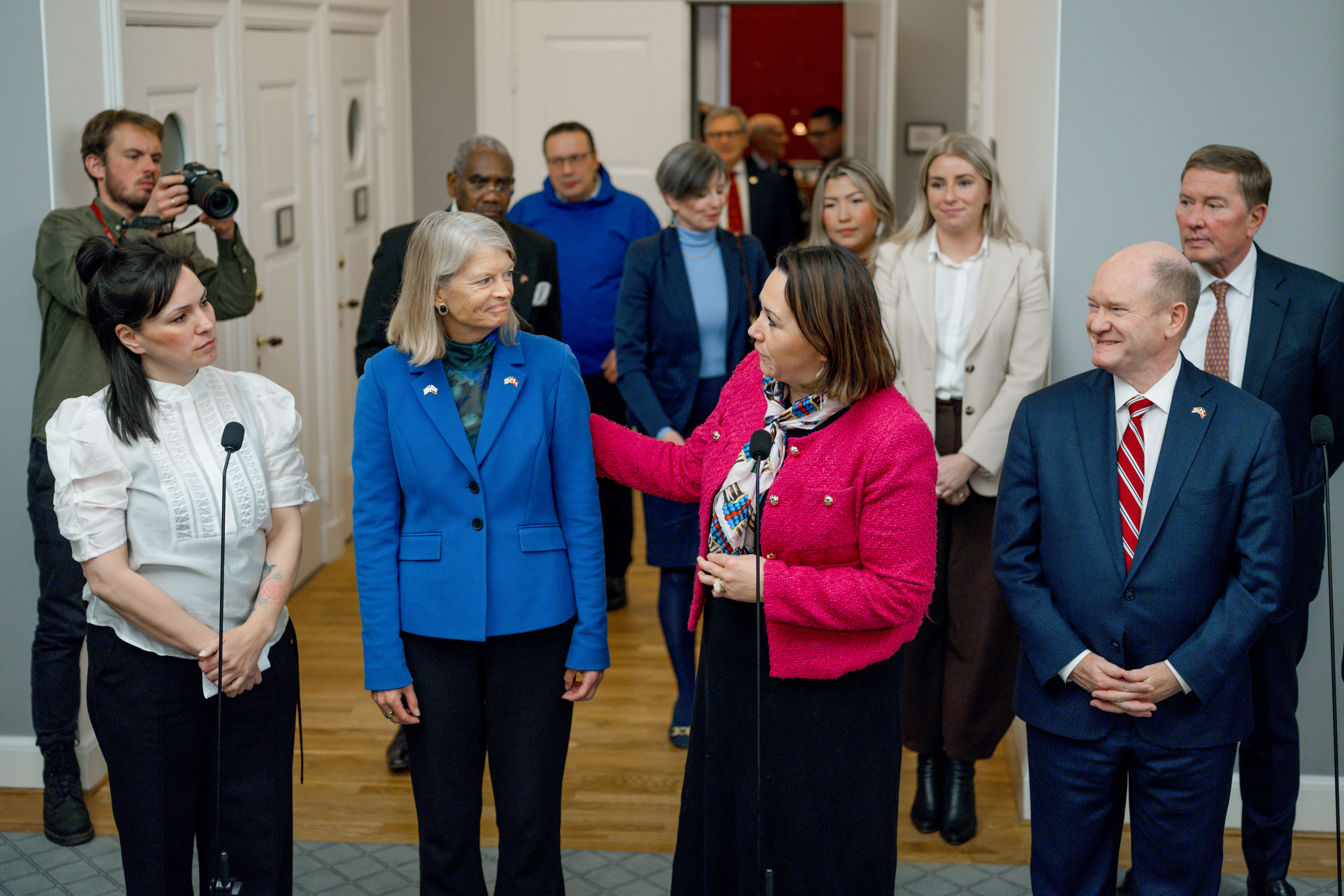Mixed reaction to anti-crime program which blocks some Birmingham streets
By Sara Güven, Reflect Alabama Fellow
Streets in Birmingham’s East Lake neighborhood are now blocked by brightly painted concrete barriers and houseplants in a new effort by Mayor Randall Woodfin to reduce crime.
They’ve been placed there by the mayor’s office as part of a new initiative in a neighborhood plagued by shootings, drug dealing, prostitution and more. The effort, called Safe Streets, launched at the beginning of July. The program also includes traffic calming measures and garbage cleaning efforts.
According to Woodfin, reducing access to the area and cleaning dilapidated streets will make it more difficult for people to conduct illegal activities. He said the effort is informed by data from cities across the country that have implemented similar methods.
Woodfin said extensive surveys were conducted with residents through a door-knocking campaign. He said his office spoke to 350 residents inside the barriers, with 90% of them supporting the plan.
However, residents who spoke with WBHM offered a range of opinions on the initiative.
Mimi Freeman, an East Lake resident for 14 years, strongly approved of the barricades. She said criminal activity has worsened over time.
“It was not this bad in crime when I was younger. You had the occasional robbery, maybe a car break-in, something like that,” Freeman said. “But it was never this bad where it was a murder, a killing, a drive-by shooting every single day of the week.”
She appreciated the effort, and wants more barricades to be put up.
Darell Nance, who’s lived in East Lake for six years, was grateful for Woodfin’s attempt to address the neighborhood’s issues, but questioned if barricades were the most effective means to do so.
“A lot of the efforts, I think could be achieved without putting a bunch of barriers in place and making residents feel like they’re locked in,” Nance said.
He worried the barricades will not do enough and that the attention on the neighborhood will fade.
“I feel like we’re going to get 90 days of attention and then this is going to fall off and it’s going to be back to business as usual type of thing,” Nance said.
Russell Hooks, a resident since 2019, initially had some concerns.
“I joked, as long as it’s not Escape from New York, where they just block off the neighborhood and just let everything inside that neighborhood happen,” Hooks said.
He’s since grown more willing to consider the barricades as a solution, especially since they are accompanied by other efforts. Still, he preferred a different solution for the long term.
“My hope is that it won’t be permanent. They can do the pilot program, maybe do a little bit longer, and at some point, figure out a different solution – just for the convenience of having the roads open,” Hooks said. “But I definitely understand why they did it the way they did, given the limited resources of the (police) officers.”
Jason Hameric shared a similar view. He opposed the barricades and said they make their neighborhood seem like a prison.
“If you isolate people and make them feel like they’re around walls, they have nothing to expect but that,” he said.
Hameric said he’s lived in Birmingham all his life, but felt the issue of crime has him considering leaving.
“When my wife and I decided to buy a house and start a business, we wanted to make sure that Birmingham got our tax money because we believe in the city. And we stayed here for that reason,” Hameric said. “It’s the first time we’ve ever thought about taking our business and our house somewhere else, because we feel like it’s on a downward spiral.”
Residents said they have seen a decrease in traffic, but noted that traffic may have shifted to other streets. Some residents expressed concern about the barricades’ effect on property value.
The barriers will remain in place until October, the end of the pilot phase. After that, the program will be evaluated to determine next steps.
Italian fashion designer Valentino dies at 93
Garavani built one of the most recognizable luxury brands in the world. His clients included royalty, Hollywood stars, and first ladies.
Sheinbaum reassures Mexico after US military movements spark concern
Mexican President Claudia Sheinbaum quelled concerns on Monday about two recent movements of the U.S. military in the vicinity of Mexico that have the country on edge since the attack on Venezuela.
Trump says he’s pursuing Greenland after perceived Nobel Peace Prize snub
"Considering your Country decided not to give me the Nobel Peace Prize… I no longer feel an obligation to think purely of Peace," Trump wrote in a message to the Norwegian Prime Minister.
Trump has rolled out many of the Project 2025 policies he once claimed ignorance about
Some of the 2025 policies that have been implemented include cracking down on immigration and dismantling the Department of Education.
U.S. lawmakers wrap reassurance tour in Denmark as tensions around Greenland grow
A bipartisan congressional delegation traveled to Denmark to try to deescalate rising tensions. Just as they were finishing, President Trump announced new tariffs on the country until it agrees to his plan of acquiring Greenland.
Can exercise and anti-inflammatories fend off aging? A study aims to find out
New research is underway to test whether a combination of high-intensity interval training and generic medicines can slow down aging and fend off age-related diseases. Here's how it might work.

